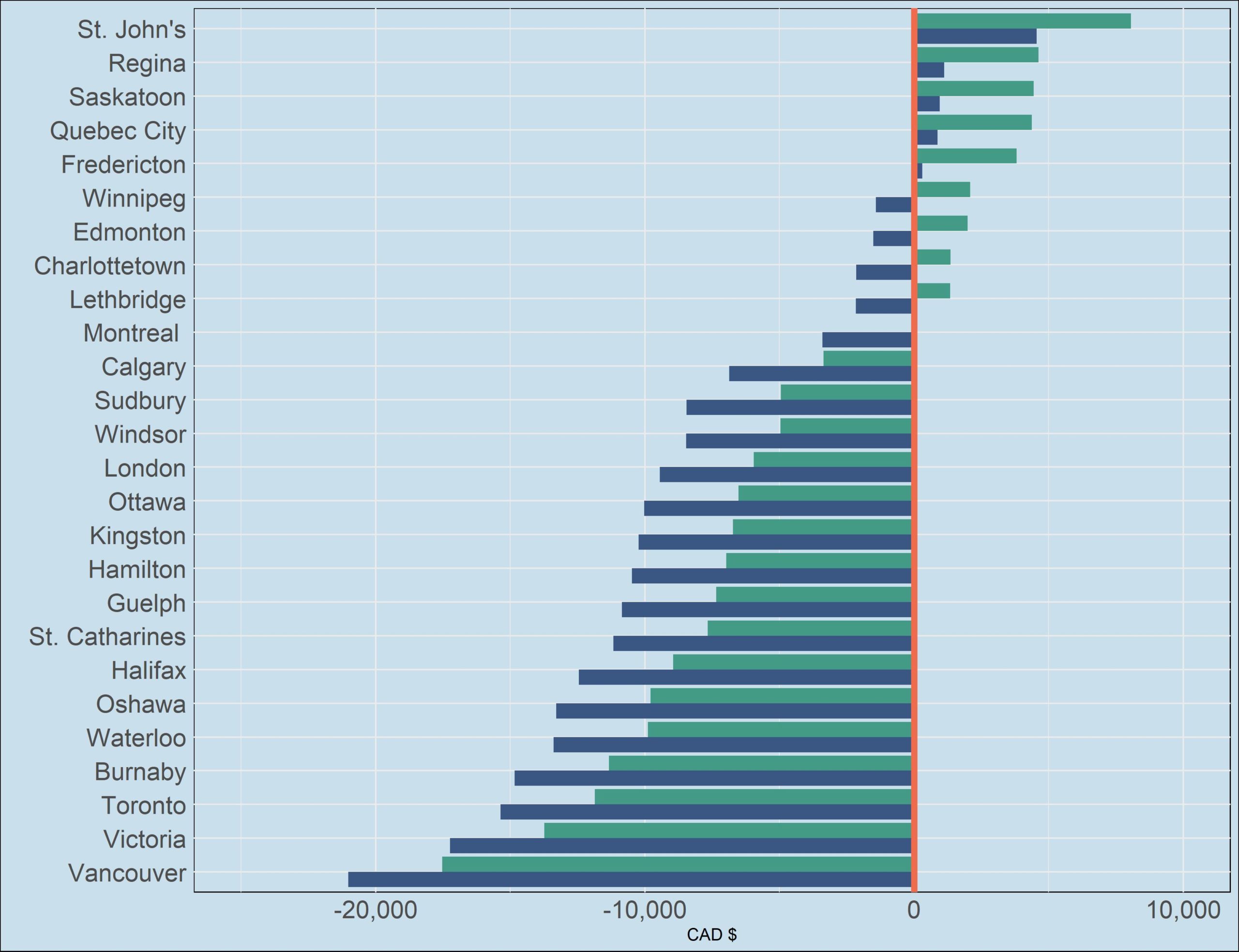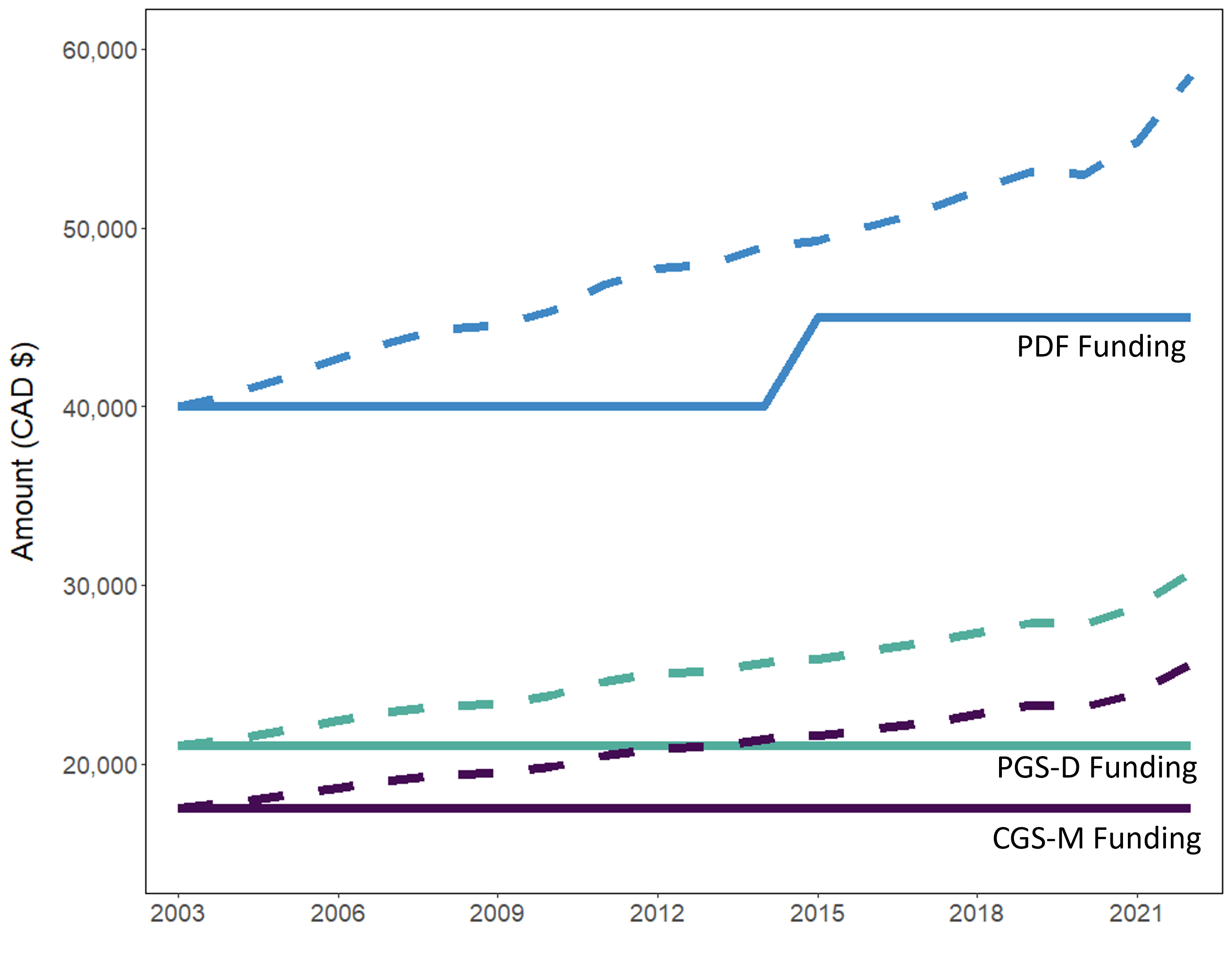Support Our Science: The Need for Increased Graduate Students and Post Doctoral Scholars in Canada

When discussing attracting and retaining scientific talent in Canada, the phrase ‘brain drain’ – the loss of skilled individuals from Canada to other countries – inevitably makes an appearance. It evokes an image of established professionals packing up and moving out, but the loss is far more complex than this. It begins with a lack of support for early-career researchers that diminishes the financial viability of pursuing such professions in the first place. Graduate students and postdoctoral scholars, who conduct much of the primary research in this country and represent the future of our innovative economy, simply cannot afford to live on the wages that Canada offers them.
Since April of this year, the House of Commons Standing Committee on Science and Research (SRSR) has been conducting a study on ‘Top Talent, Research and Innovation’. Through witnesses and briefs, the SRSR has heard how the current state of graduate student and postdoctoral funding has reached a tipping point. Graduate students can’t afford to continue their research careers as postdoctoral scholars, let alone make ends meet today. Postdoctoral scholars see years of specialized training and post-secondary education rewarded with salaries on par with entry-level jobs. The investments Canada has made in the next generation of researchers through scholarships and fellowships administered by the Natural Sciences and Engineering Research Council of Canada (NSERC), Social Sciences and Humanities Research Council (SSHRC), and Canadian Institutes of Health Research (CIHR), collectively referred to as the Tri-Agencies, has stagnated.
The numbers are so straightforward that it makes one wonder how it has become so bad. The Tri-Agencies provide competitive scholarships for graduate students designed to offer the financial freedom to “fully concentrate on their studies”1 without taking on additional paid work. A master’s student enrolled in a two-year program (or longer, in many fields) may be awarded a CGS-M scholarship: $17,500 for one year, non-renewable. By the time the student pays the average tuition rate for graduate studies in Canada ($7,472 per year), they will have $10,000 to live on – well below the poverty line across the country. A competitive Ph.D. candidate may win a PGS-D scholarship valued at $21,000 annually for three years. Given that the average Ph.D. program is 4-6 years in length, and students continue to pay annual tuition out of this award value, this funding does not stretch far. Perhaps the most egregious oversight over the years is that the CGS-M ($17,500) and PGS-D ($21,000) scholarships have not increased in value since 2003. In this same 19-year period, inflation has risen by nearly 50%. Despite their stated intent, these awards no longer adequately support graduate students.

Figure 1. The amount remaining after paying average domestic graduate student tuition ($7,472/year) and rent for a 1-bedroom apartment in cities where a Canadian university is situated. Data available in the Support Our Science Data Repository.1

Figure 2. Graduate student scholarship (CGS-M & PGS-D) and postdoctoral scholar fellowship (PDF) award amounts have not kept pace with inflation (dashed lines) in Canada. Data available in the Support Our Science Data Repository.1
Postdoctoral scholars fare no better. These individuals are highly trained, hold a Ph.D., and the federal fellowships they are eligible for are “intended to secure a supply of highly qualified Canadians with leading-edge scientific and research skills for Canadian industry, government, and academic institutions.”1 Today, this fellowship pays $45,000 per year. In 2003, the award was slightly lower at $40,000 per year. If its value had tracked inflation, it would be worth close to $60,000 today.
Figure 3. Competitive Tri-Council scholarships are valued at $45,000 per year. When considering the cost of living in major Canadian cities, this is not enough to cover basic yearly expenses. Figure expenses include rent for a 2-bedroom apartment, utilities (phone, internet, electricity), groceries for a household of 3, transportation, and preschool. Expenses ranged from $42,252 to $79,104/yr. Data available in the Support Our Science Data Repository.1
These low wages mean that graduate students and postdoctoral scholars are struggling. Support Our Science,2 a movement powered by the very graduate students and postdoctoral scholars who are living this reality, has given a voice to these individuals. The Faces of Researchers campaign collects first-person stories, many of them submitted anonymously out of shame or fear of retribution for stating the reality of their funding situation. One anonymous student shared: “I have experienced homelessness multiple times in the past and fear that … I will once again be forced to choose between paying rent and feeding myself.” An NSERC-funded Ph.D. student describes how they are an expert in their discipline, a course instructor, and a mentor for undergraduate students yet cannot afford to live on their own. They add, “I have friends in France and Australia who pay 1/16th the amount in tuition and make a living wage to complete their PhDs. They are paid like experts – because they are experts in their field. It’s absolutely insulting we aren’t being paid for our expertise.”
They highlight how a $45,000 salary is not enough to retain postdoctoral scholars in Canada: “I’m in Australia for my postdoc – not least because the pay is literally more than double the current Tri-Council amounts,” wrote one postdoctoral scholar who had been awarded a competitive fellowship from CIHR in Canada, but declined. Winning these low-paying fellowships is difficult: “It would be great to finally get funded as a postdoctoral researcher in Ecology and Evolution. I have published in high-profile journals and been competitive in the North American job market … yet I had trouble being funded by NSERC.” Though these fellowships are scarce, their prestige means that they set the bar for postdoctoral salaries across the country.
What is troubling in this story is also who is absent. International students have shared their stories of poverty, and yet are ineligible for many of these awards and pay over twice as much in tuition as domestic graduate students (average $20,120 annually). Access to these prestigious awards is inequitable, restricting who receives this funding, and there is work to be done to remove the barriers that limit access for historically excluded groups (e.g., work by the SSHRC Advisory Committee to Address Anti-Black Racism3). Importantly, there are many people who are not represented because financial barriers prevent them from seeking graduate training. Graduate students and postdoctoral scholars are adults, meaning many are parents or have other care duties, and others may want to return for an advanced degree after being in the workforce. The prohibitively low stipends at Canadian universities prevent people from pursuing this training and are punitive to those who stay in the system.
Support Our Science has an immediate goal of increasing the number and value of Tri-Council scholarships and fellowships through increased federal funding. Through an Open Letter, House of Commons petition, rallies, and email campaigns we have heard from thousands who support this movement. But we recognize that only improving Tri-Council awards will not go far enough to alleviate the problem. Anyone should be able to pursue graduate training in Canada and not be harmed in the process. If Canada wants to remain a serious global research power with a strong innovation economy, we must invest in the next generation of research leaders. Really, can we afford not to?
- https://www.nserc-crsng.gc.ca/students-etudiants/pd-np/pdf-bp_eng.asp Support Our Science, https://www.supportourscience.ca/
- SSHRC SSHRC Advisory Committee to Address Anti-Black Racism, https://www.sshrc-crsh.gc.ca/about-au_sujet/governance-gouvernance/committees-comites/racism-racisme-eng.aspx
- Support Our Science Data Repository, https://cdrobich.github.io/SoS_funding/


